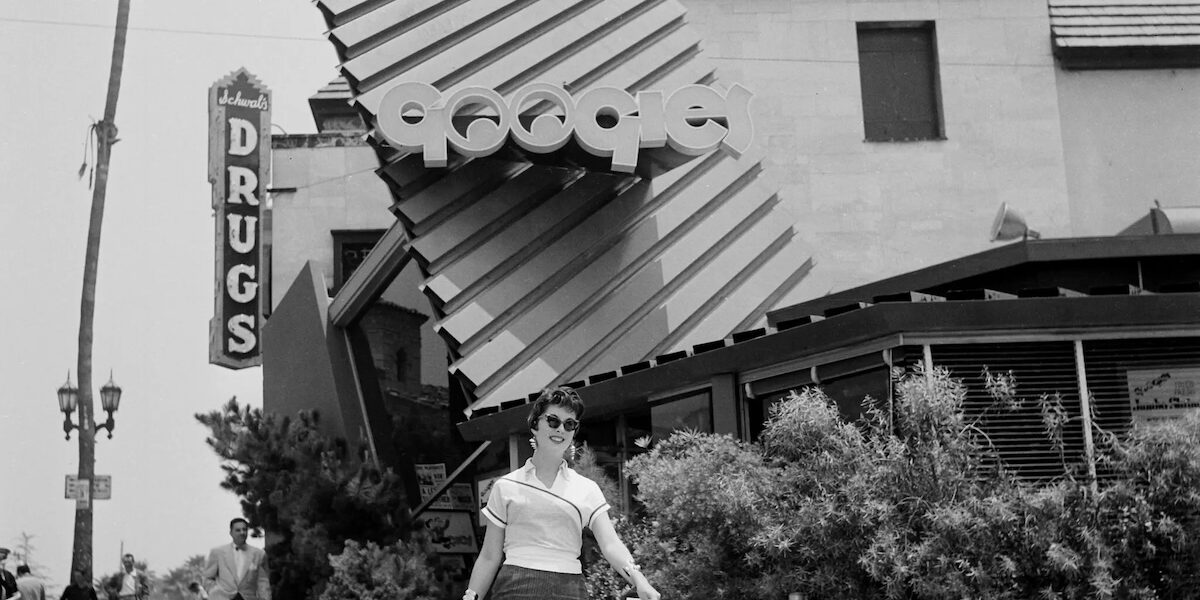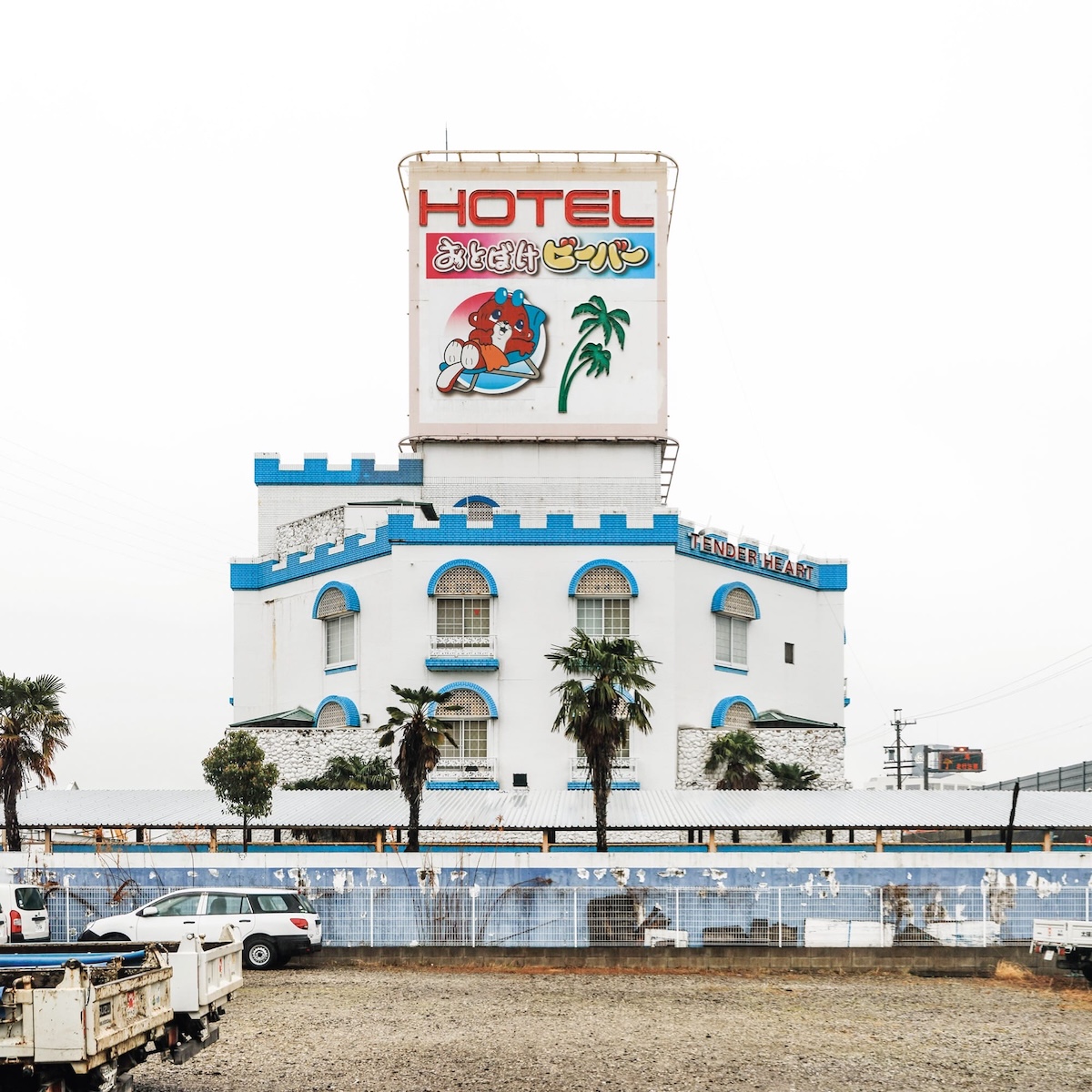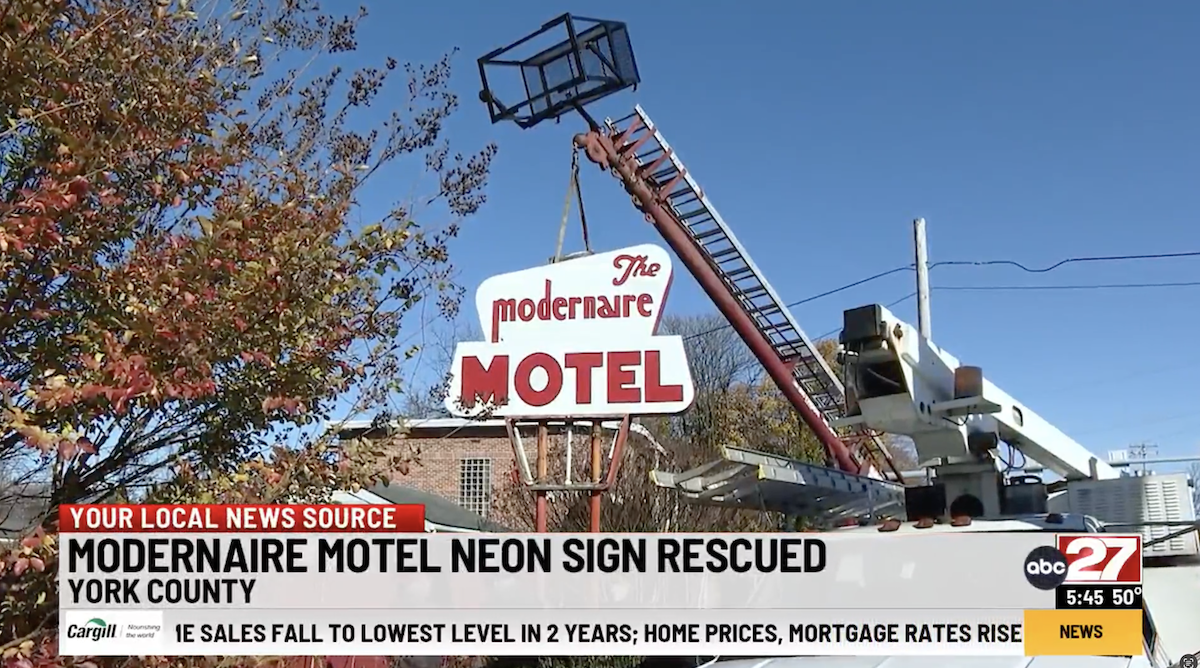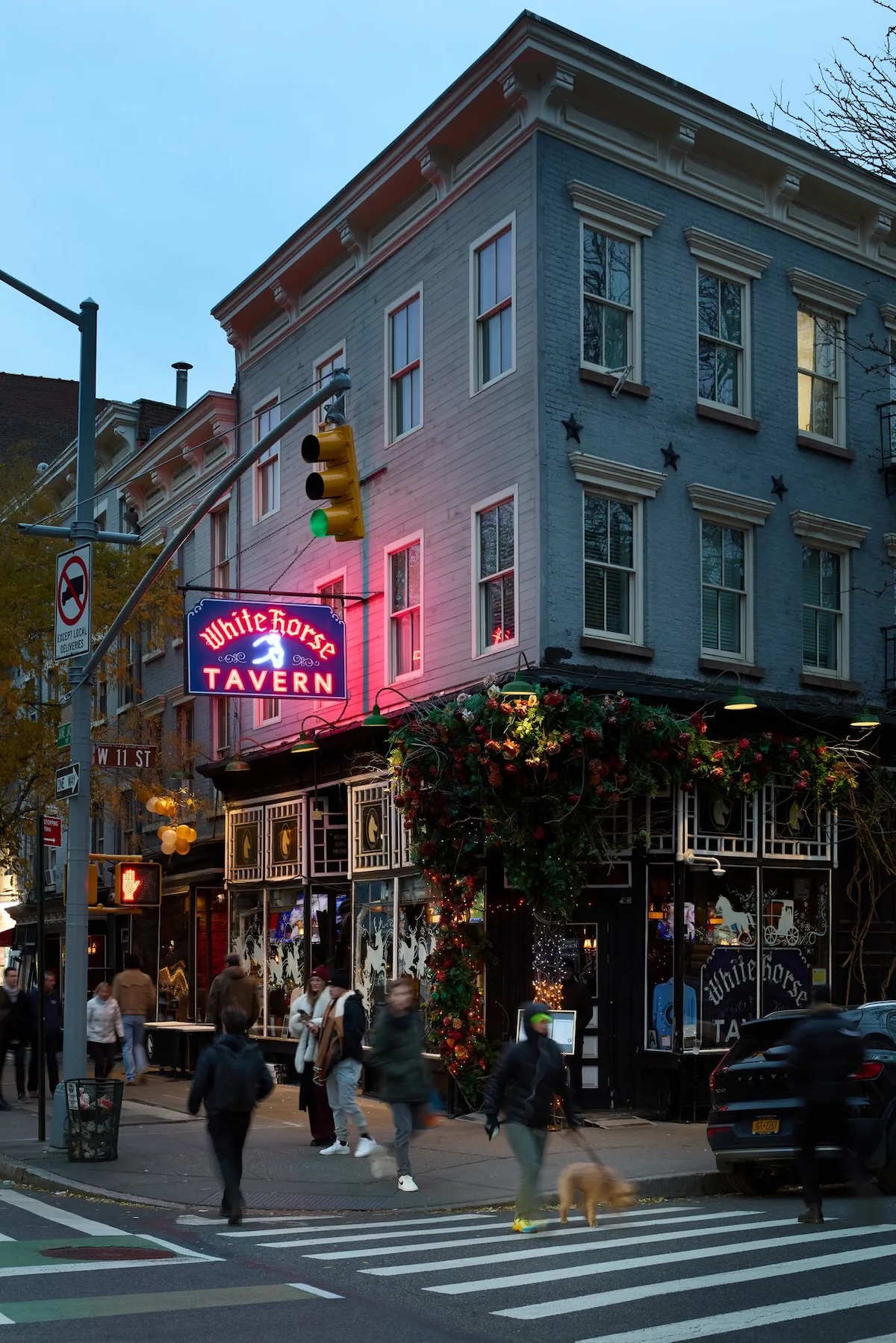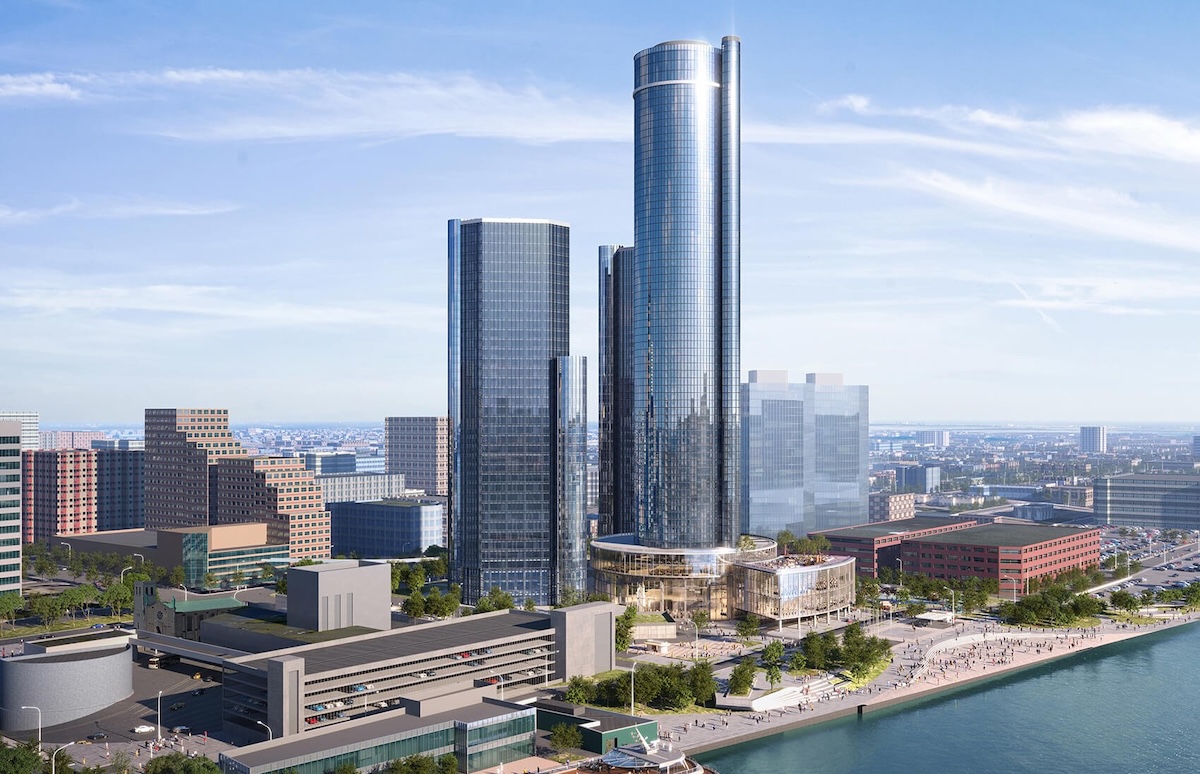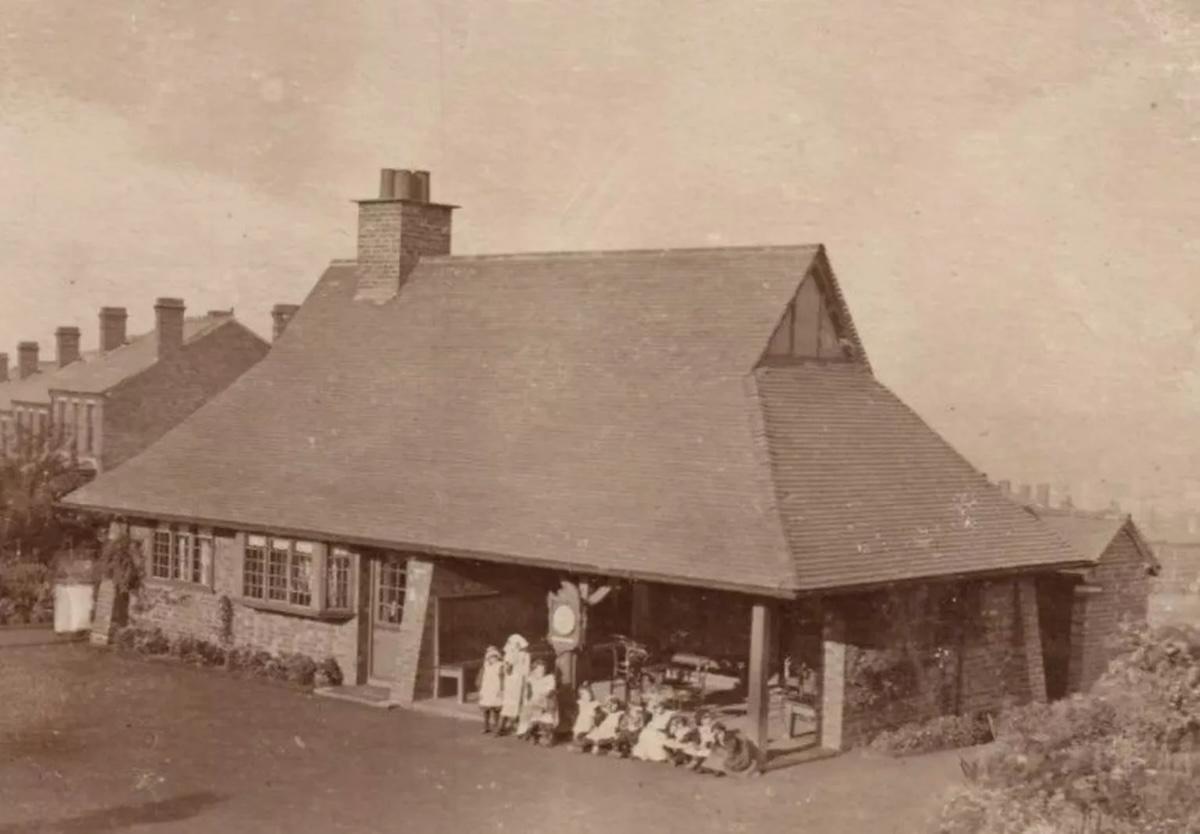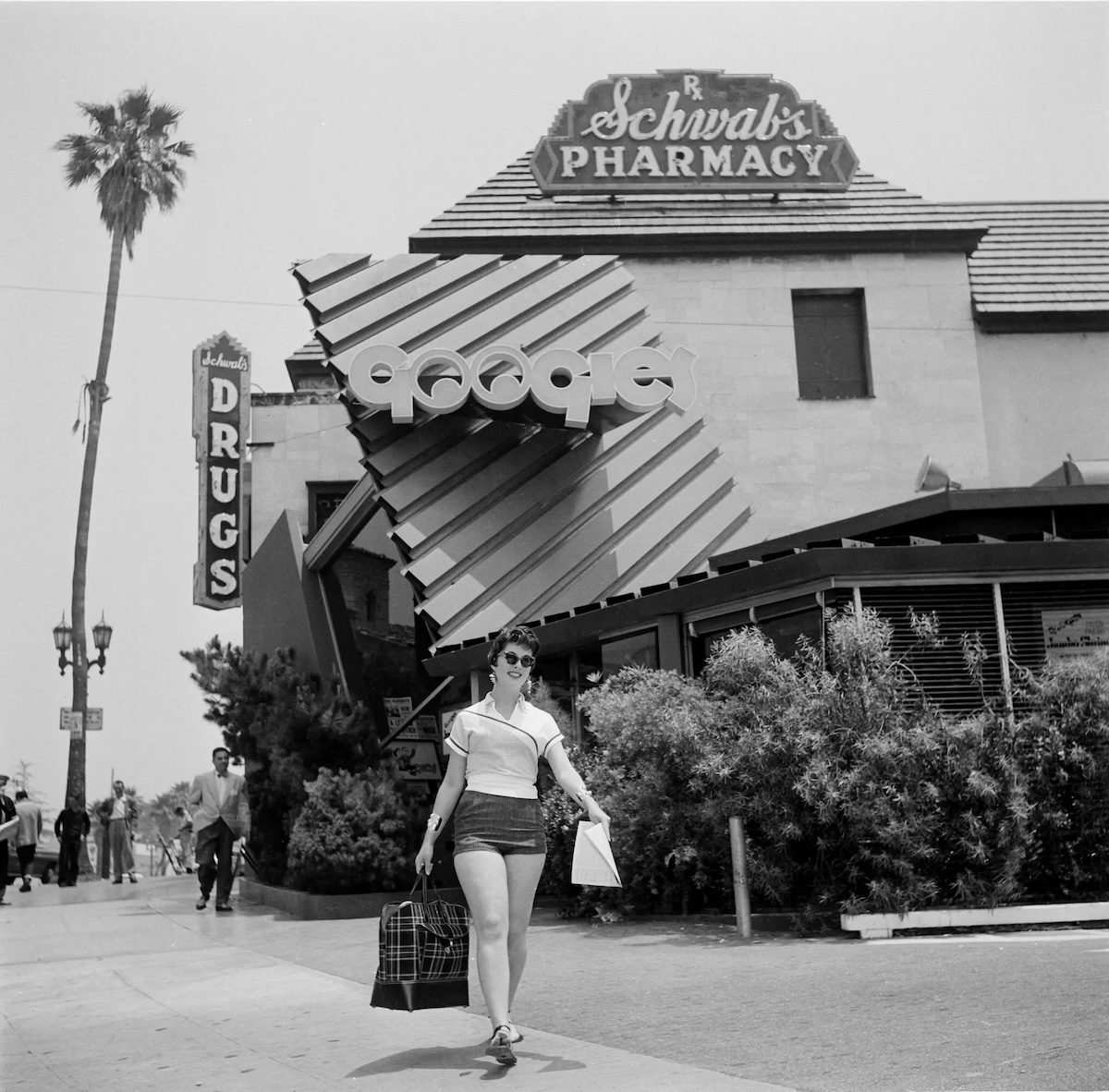Quirky Facades of Japan’s Love Hotels Feature in François Prost’s Vibrant Portraits
Image courtesy of François Prost
From Colossal: “Love hotels are a unique and deeply ingrained part of Japanese culture,” says photographer François Prost. “These venues have a very ‘talkative’ quality visually—they’re expressive in their design, reflecting aspects of local culture, values, and even fantasies.”
During a trip to Japan in 2023, when Prost was exhibiting an earlier series of works called Gentlemen’s Club at a gallery in Tokyo, he embarked on a road trip from the capital city to Shikoku Island in the southeast of the country. With the gallery’s urging, he undertook a new project while visiting, documenting the facades of love hotels—also sometimes called “boutique” or “fashion” hotels—that offer rooms at cheap rates for brief stays.
Help save Pennsylvania’s neon history from Lincoln Highway
From PennLive.com: My earliest memory of traveling along the Lincoln Highway was growing up in western Pennsylvania. We headed every summer to Idlewild Amusement Park in the Laurel Highlands near Ligonier, Pa., for my father’s annual company picnic. We also meandered through Storybook Forest to remember nursery rhymes that now are mostly forgotten.
I remember the break from the summer heat in the higher elevations and the happy memories traveling along this historic road. Dutch Wonderland just east of Lancaster along the Lincoln Highway still gives people similar experiences today and we took our children there to offer simpler entertainments before the days of the mega amusement parks. Thankfully, places like Idlewild Park, Storybook Forest and Dutch Wonderland remain open for families to enjoy.
Last Call for Neon in New York City
Outside the White Horse Tavern in Greenwich Village, where an LED-lit replica now hangs in place of the original 1946 neon sign. Ashok Sinha for The New York Times
From The New York Times: For nearly eight decades, the warm glow of a handcrafted red-and-white neon sign beckoned passers-by outside the White Horse Tavern in Greenwich Village. Dylan Thomas, Jack Kerouac and Bob Dylan all imbibed at the storied watering hole, which opened in 1880.
But this year, the sign abruptly went dark. In the spring, the White Horse removed its 1946 neon sign and replaced it with a replica illuminated not by gas but by light-emitting diodes, or LEDs.
GM and Bedrock reveal master plan for John Portman’s Renaissance Center by Gensler and Field Operations
A new plan by Gensler’s Detroit office and Field Operations would tear down two of General Motor Renaissance Center’s original towers and replace them with three new smaller ones filled with “a mix of hospitality and housing.” (Courtesy Bedrock and Gensler)
From The Architect’s Newspaper: John Portman’s General Motors Renaissance Center has cast shadows over Downtown Detroit for decades. Since 1976, the five towers, replete with quintessential Portmanian atria, stacked atop a gargantuan base have enticed praise, debate, and criticism in Michigan’s largest city.
The full spectrum of public opinion about the complex, and Renaissance Center’s design merits more broadly, were well captured in Charles Rice’s Interior Urbanism: Architecture, John Portman, and Downtown America, but also by Jordan Hicks in The Avery Review.
A new plan by GM, Bedrock, and Gensler’s Detroit office would tear down two of Renaissance Center’s original towers and replace them with three new smaller ones filled with “a mix of hospitality and housing,” the developers said in a statement. The tear downs would open up large amounts of space on the ground plane for pedestrian-centered uses.
The road that got the Black Country back to work
The lodge at Bury Hill Park was one of the obstacles to the new road and had to be moved
From the BBC: A century ago, the Black Country was in the grip of the depression after World War One.
But use of a relatively new invention – the car – was on the rise, and there was increased demand for travel between Wolverhampton and Birmingham.
A new highway – still known 100 years later as Birmingham New Road – was proposed to solve both issues, putting hundreds of unemployed men from the region to work.
The Fight to Save Googie, the Style of Postwar Optimism
The term Googie came from the name of a Los Angeles restaurant designed by John Lautner. Earl Leaf/Michael Ochs Archives, via Getty Image
From The New York Times: In June, the Arby’s on Sunset Boulevard in Los Angeles shut down. The news, announced on the restaurant’s marquee — “FAREWELL HOLLYWOOD TY FOR 55 GREAT YEARS” — didn’t seem surprising, with rents and labor costs on the rise. What was out of the ordinary was the public’s response to it.
Judy Sibelman, whose family had owned the business, said that she was overwhelmed by the “outpouring of emotion” from strangers. People wrote to the family “saying things like ‘I was a writer at one of the studios around the corner, and I would sit in a corner booth at Arby’s and write,’” Ms. Sibelman said. “One person even said they lost their virginity there. I certainly hope it was in the parking lot.”


